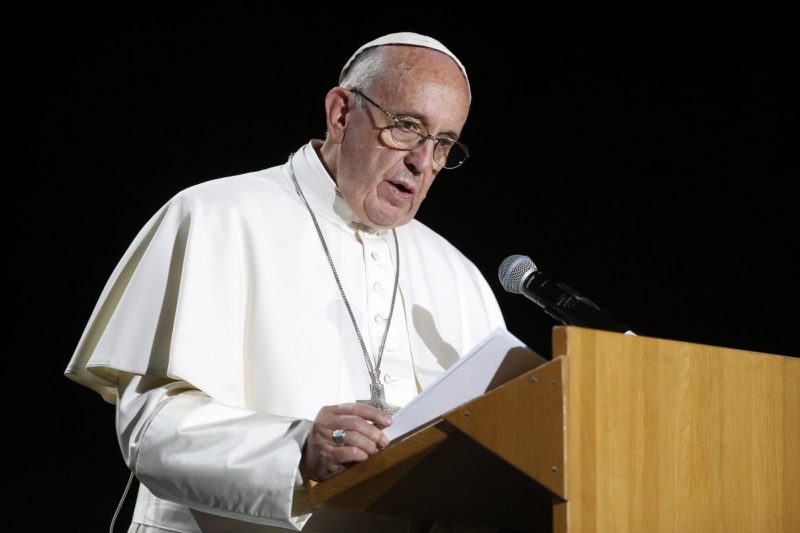Thanks, But No Thanks, Pope Francis: Abortions Don’t Need To Be Forgiven
If Pope Francis were serious about taking the Church in a more progressive, merciful direction, he would stop fanning the flames of abortion stigma and focus instead on protecting women’s health and well-being.

The “Cool Pope” is at it again.
Via a November 20 apostolic letter, Pope Francis has given priests the power to indefinitely grant forgiveness for abortion (an extension of his previous limited-time offer) and permit repentant women to rejoin the Church.
“I henceforth grant to all priests, in virtue of their ministry, the faculty to absolve those who have committed the sin of procured abortion,” he wrote. “I wish to restate as firmly as I can that abortion is a grave sin, since it puts an end to an innocent life. In the same way, however, I can and must state that there is no sin that God’s mercy cannot reach and wipe away when it finds a repentant heart seeking to be reconciled with the Father.”
As a pro-choice woman who was raised Catholic, let me just say: Thanks, but no thanks.
This proclamation is not some grand gesture of mercy. It is not welcoming or inclusive, as some have claimed. It is a smokescreen designed to reinforce the notion that abortion is evil and that the people who seek abortion care are mortal sinners (the worst kind of sinners, according to Catholic catechism). Moreover, at a time when the next president of the United States has said that women must suffer some form of punishment for having an abortion, it’s downright reckless.
The Pope has clearly mastered the art of reframing the Vatican as more forgiving, but as this latest move demonstrates, good public relations doesn’t translate to good policy. His comments do not change church doctrine; they merely reinforce abortion stigma, sexism, and the myth of abortion regret under the guise of compassion.
Let’s be clear: There’s nothing compassionate about singling out people who have abortions and branding them as murderers. Nor is there anything compassionate about requiring women to grovel at the feet of priests—men in power who routinely deny women (and others) full equality—for forgiveness and a chance to be welcomed back into their religious community (the very community that shunned them for exercising free will in the first place).
But more to the point, abortion does not necessitate absolution. It is not wrong or inherently evil; it is health care, plain and simple.
In some circumstances, abortion is medically necessary. In others, it’s a path toward socioeconomic stability and autonomy. Perhaps that’s the real perceived threat to Catholicism: sovereign women. Yikes!
But at a time when women are being put in jail—in the United States and across the globe—for the termination of their pregnancies, we have to really question how comments like these from the Pope can fuel legislative attacks against people exercising their basic human right to abortion.
Whatever the situation, people who have abortions do not need to apologize or beg for forgiveness. They have done nothing wrong. (If anything, people who seek abortions understand and respect the awesome responsibility of bringing life into the world).
What is wrong is the wholesale condemnation of people who choose not to remain pregnant, and the undeniable effects of the Church’s interference with abortion access (let us never forget Savita Halappanavar, who died as a result of a Catholic hospital denying her a life-saving abortion). Indeed, as Erin Matson previously wrote for Rewire, “Preventing a woman’s access to abortion through advocating for restrictions upon reproductive care, as the Vatican does, is immoral.”
If Pope Francis were serious about taking the Church in a more progressive, merciful direction, he would stop fanning the flames of abortion stigma and focus instead on protecting women’s health and well-being. He could, for starters, denounce unsafe abortion—for example, when women do not have access to (legal) abortion care, they may attempt to self-induce or seek out clandestine abortion—which is responsible for 47,000 deaths annually. That would truly be “pro-life.”
Until then, and until we no longer have to beg for forgiveness over reproductive health care, it looks like “progress” for the Catholic Church is merely a papal Twitter account.
